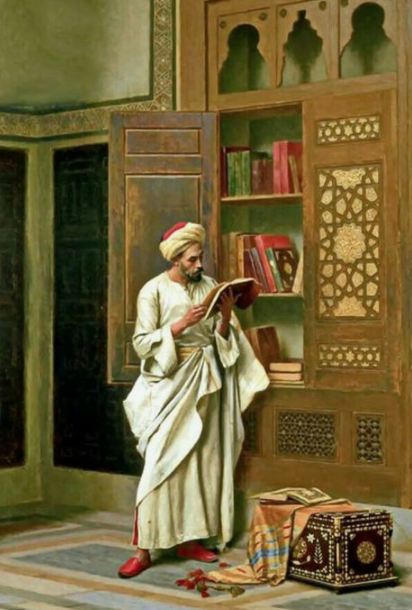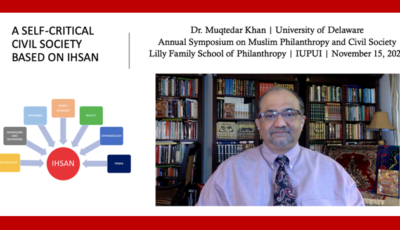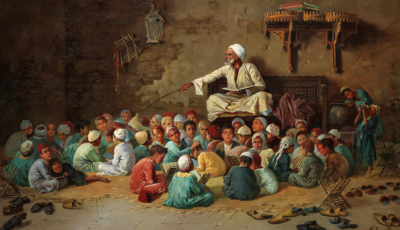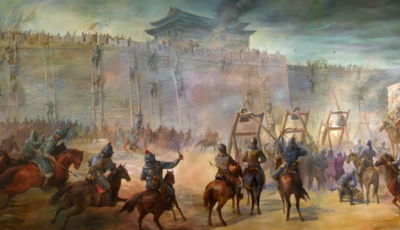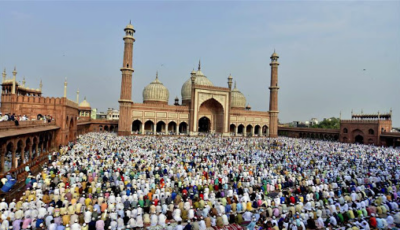The Best Kind of Wealth is a Thankful Heart
This article was first published in The News Journal on November 24th, 2017.
“Remember Me, I will remember you,
Be thankful to Me, and do not be ungrateful to Me.” [Qur’an 2:152]
When some companions of Prophet Muhammad (peace be upon him) asked him, “What is the best kind of wealth to acquire,” he replied; “The best wealth is a tongue that remembers God, a thankful heart and a believing partner who helps keep the faith.” Thankfulness is a fundamental element of Islamic faith and a necessary ingredient of the believer’s spiritual state. Indeed, Islam is basically a love affair between a merciful God and a thankful servant.
Why, one may ask, does one need be thankful to God? According to Islamic sources the first thing that God did, even prior to creating his creation, is to articulate a guiding principle for himself – “may my mercy (rahmah) prevail over my wrath.” Those who preach about God as one who seeks retribution for bad deeds or as one who is a tough taskmaster demanding virtue and threatening his creation with hellfire are spreading fake news. God is above all compassionate and merciful not vengeful and vindictive. True believers recognize this reality and it is through their thankfulness for God’s mercy that virtue is born, not out of fear of God’s punishment. Fear may generate compliance, but it is gratitude that fosters love and inspires virtue.
Lay people generally understand mercy in terms of compassion or forgiveness, but the idea of rahmah (mercy) in Islamic tradition is a much deeper and broader concept that includes benevolence, love, blessing, and creation. God’s creation of this creation is an act of mercy. His granting us the gift of life and especially the capacity to know him and to love are his greatest acts of mercy to us. God’s mercy is most manifest is his statement in the Quran that he loves us. In verse 54 of chapter five in the Quran, God speaks of those whom he loves and who love him, but the critical thing here is that he loved us first. God’s love for us manifests as his mercy towards us and our love for him as thankfulness.
One day Prophet Muhammad’s wife Ayesha asked him why he prayed so much and so often even though God had promised him salvation. The Prophet responded, “O Ayesha, shouldn’t I then be a grateful servant.” By being always publicly thankful, Prophet Muhammad tried to teach Muslims the importance of being thankful. Often when he heard good news he would prostrate and thank God for his bounties and generosity.
On a strictly doctrinal level, thankfulness is a critical aspect of belief. There is a verse in the Quran (14:7) that so strongly emphasizes the importance of thankfulness that its absence is equated with denial of truth and harboring of disbelief. Chapter 55 of the Quran named The Most Merciful (Al-Rahman) is considered by many its most beautiful chapter. In this chapter after enumerating some of his favors to humanity, God asks 31 times “how many of your Lord’s favors will you deny?” This powerful rhetoric I believe is designed to teach the profound significance of thankfulness in shaping a spiritual life.
Thankfulness to God in all matters, in happiness and in sorrow, in abundance and in hardship, is a divine command, a prophetic example and a deeply embedded cultural habit for believing Muslims. Initially many immigrant Muslims show reluctance to adopt the American tradition of celebrating Thanksgiving. They are perplexed by the idea of thanking God once a year when their faith teaches them to be always in a state of thankfulness. But after a few years in America, they realize that just because we have a Mother’s Day and a Father’s Day does not mean we cherish our parents only on that day and not all year long. We cherish our parents all the time, but on these days, we go the extra mile to express our love and gratitude. The same is true for Thanksgiving. More and more Muslims now celebrate Thanksgiving and are integrating it into their family traditions.
Just as love for God and service to God is best expressed through love for his creation and service to humanity, so is thankfulness. Prophet Muhammad said, “He has not thanked Allah, who has not thanked people”. One thanks other people by serving them. I hope as American Muslims become more established in the United States they invest more in institutions that advance the common good, regardless of race, religion, ethnicity, than just those that preserve Muslim identity. America preserves our religious freedom and we should be thankful in words and deeds.
This article is dedicated to my friend the late Jason Levine. I am thankful for the work we did together.
Please listen to this Friday Khutbah (sermon) that is related to this theme “Love is the Essence of Islam”.

